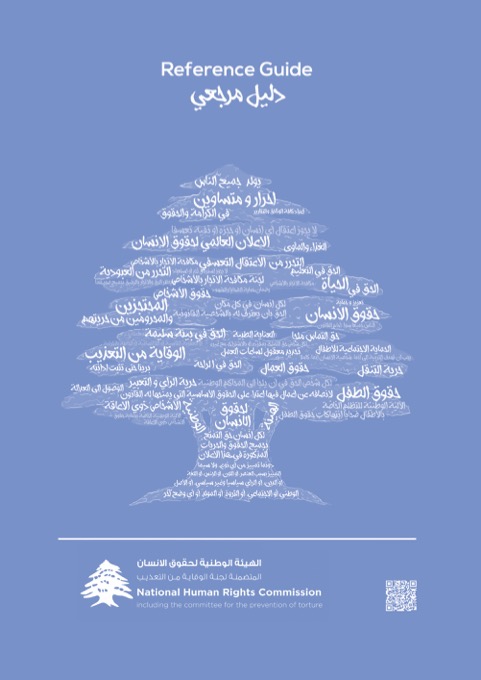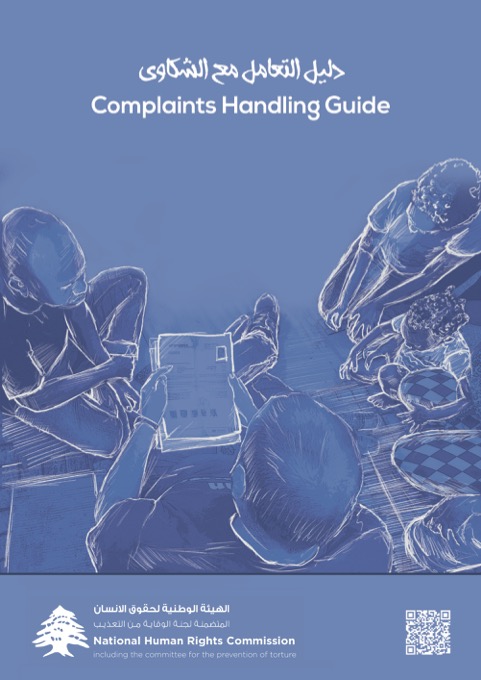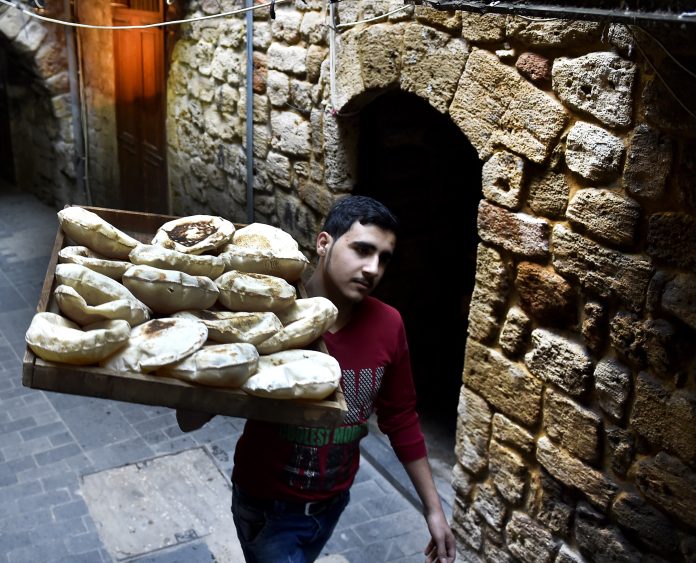The National Human Rights Commission, which includes the Committee for the Prevention of Torture, has issued its legal opinion on the draft law submitted by MP Dr. Inaya Ezzeddine concerning “The Right to Food and the Establishment of the National Council for Food Systems,” considering it a foundational step in transforming economic and social rights from theoretical principles into measurable and accountable legal obligations.
The Commission affirmed that the proposed bill aligns with the Lebanese Constitution and international agreements, particularly the International Covenant on Economic, Social and Cultural Rights. It also strengthens Lebanon’s commitment to achieving the right to adequate and sustainable food within the framework of the 2030 Sustainable Development Goals.
The Commission praised the establishment of the National Council for Food Systems as an institutional addition that brings together the concerned ministries, independent bodies, and civil society. It also emphasized the need to update the membership of public institutions mentioned in the proposal to align with the existing administrative structure.
Furthermore, the Commission welcomed the creation of a permanent committee within the National Human Rights Commission to protect the right to food, considering this measure as a reinforcement of the principles of independent oversight, transparency, and accountability. It also supports the most vulnerable groups, including women, children, the elderly, and persons with disabilities.
In conclusion, the Commission recommended ensuring the financial and administrative independence of the Committee for the Protection of the Right to Food, involving civil society and farmers in decision-making processes, harmonizing definitions with international standards, and integrating food and environmental education into school curricula.
Opinion of the NHRC-CPT on the Draft Law “The Right to Food and the Establishment of the National Council for Food Systems”
First: Facts & Procedures
Her Excellency MP Dr. MP Dr. Inaya Ezzeddine submitted a draft law entitled “The Right to Food and the Establishment of the National Council for Food Systems” on 26 February 2024. The proposal was referred to the Committees of Administration and Justice; Environment; National Economy, Trade, Industry & Planning; Public Health; Labour; Social Affairs; Agriculture and Tourism. It was also referred to the Government on the same date.
Subsequently, the Secretariat‑General of the Presidency of the Council of Ministers referred the draft to the National Human Rights Commission (which includes the Committee for the Prevention of Torture) for issuing its legal opinion, in accordance with Article 15 of Law No. 62/2016.
The Commission considers that the draft law constitutes a foundational step in the process of converting economic and social rights from theoretical principles into measurable and accountable legal obligations. It further views this project as a model for the integration of human rights, sustainable development and public policy, and enhances Lebanon’s position in its international commitment to the right to adequate and sustainable food.
Second: Legal Basis for the Commission’s Competence
Pursuant to Law No. 62/2016, the National Human Rights Commission is competent to:
-
Monitor Lebanon’s implementation of its international human rights obligations;
-
Provide opinions on draft laws and public policies relevant to human rights, especially economic, social and environmental rights;
-
Monitor and document violations, and prepare reports and recommendations addressed to the public authorities.
Accordingly, the draft law “The Right to Food” falls within the Commission’s remit, given its direct link to the fundamental rights to life, health, human dignity, a sound environment and social justice.
Third: National Constitutional and Legal Framework
The project is in harmony with the provisions of the Lebanese Constitution, especially:
-
paragraph (b) of the Preamble, which states Lebanon’s commitment to the Universal Declaration of Human Rights;
-
paragraph (c), which affirms equality in rights and duties without discrimination;
-
paragraph (e), which obliges the State to social justice and balanced development;
-
paragraph (f), which stipulates the protection of the environment as a fundamental public interest.
Moreover, the project constitutes a continuation and development of Law No. 35/2015 (Food Safety), by expanding the scope of protection to the right to adequate, nutritious and sustainable food, and by reorganising the relevant institutions within an integrated national framework covering oversight, participation and accountability.
Fourth: International Reference Framework
The draft law accords with Lebanon’s international obligations under:
-
The International Covenant on Economic, Social and Cultural Rights (1966) – Article 11 recognising the right of every individual to adequate food, and Article 12 linking the right to health with environment and food;
-
General Comment No. 12 (1999) of the Committee on Economic, Social and Cultural Rights, which defines the five pillars of the right to food: Availability, Accessibility, Utilisation, Stability, Sustainability;
-
General Comment No. 26 (2022) concerning the right to a clean, healthy and sustainable environment, which links that right to food security;
-
The Food and Agriculture Organization of the United Nations (FAO) Voluntary Guidelines to support the progressive realisation of the right to food (2004), which urge States to establish independent national food security councils;
-
The UN Sustainable Development Goals (2030), especially Goal 2: “End hunger, achieve food security and improved nutrition and promote sustainable agriculture”.
Fifth: Analysis of the Draft Law’s Provisions
-
On enshrining the right to food as a fundamental human right
The project establishes the concept of food as a legal right, not merely a biological need, and makes the State guarantor of this right via its legislation and public policies. It links the right to food with the right to human dignity, aligning with contemporary human‑rights jurisprudence that regards deprivation of food as a form of cruel or inhuman treatment. -
On establishing the National Council for Food Systems
The idea of the Council is considered an advanced institutional addition, bringing together the relevant ministries (Agriculture, Environment, Economy, Health…) and independent bodies (the Commission, trade unions, cooperatives, employers). The Commission sees the need to review and update the roster of public institutions represented in the Council under Article 33 of the draft law, to ensure consistency with the existing institutional structure of the Lebanese State. Accordingly, the Commission recommends deleting or replacing names of public institutions or public councils that have been abolished by decree or law or are no longer active. -
On establishing the Committee for the Protection of the Right to Food within the National Commission
Article 30 provides for the creation of a permanent Committee within the Commission to monitor violations of the right to food, coordinating with the National Council for Food Systems. Article 31 sets out the tasks of this Committee, and a decision by the Commission will form it pursuant to Law 62 and the internal regulations of the Commission. The Commission considers this coordination enhances the principle of independent oversight (as laid out in the Paris Principles 1993), and ensures objective follow‑up of implementation and national reporting to the United Nations. -
On protecting the most vulnerable groups
The project is commended for including a dedicated chapter on women, children, the elderly, persons with disabilities and the poor, mandating ministries to adopt specific measures to ensure their access to adequate and nutritious food, thereby strengthening the principle of positive discrimination and consolidating social justice. -
On accountability and transparency
The draft law includes effective mechanisms for monitoring and periodic reporting, and for publishing data related to food security through cooperation with the Central Administration of Statistics and the Ministry of Information. The Commission considers this measure consistent with the right of access to information (Law No. 28/2017) and with transparency requirements in the management of public resources.
Sixth: Observations & Recommendations
-
Ensure the financial and administrative independence of the Committee for the Protection of the Right to Food within the budget of the National Human Rights Commission, to prevent any governmental influence on its work.
-
Ensure that the Council of Ministers approves all decrees regulating the Commission, especially the decree determining the allowances of the President, Deputy President and members of the Commission, the decree regulating contracted staff of the Commission, and the decree setting out the Commission’s code of ethics.
-
Involve civil society and farmers in decision‑making mechanisms within the National Council, in implementation of the participation principle contained in Article 21 of the draft law.
-
Harmonise the definitions of the right to food contained in the draft law with those adopted in international documents (such as the FAO Voluntary Guidelines to support the progressive realisation of the right to food, 2004).
-
Introduce food and environmental education into school curricula under a national plan implemented by the Ministries of Education and Health.
-
Emphasise the role of the Lebanese judiciary in protecting this right by enabling individuals to bring claims in cases of deprivation or food discrimination, thereby promoting access to justice.
هذه المقالة متاحة أيضًا بـ: العربية (Arabic)



